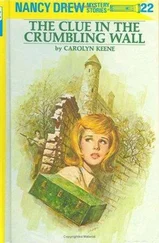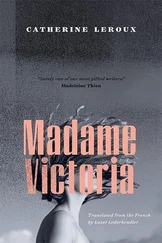The rain is coming down in small, grey, icy packets when the news hits Rockfield: the company that was expected to build the biomass processing plant has dropped the project. Despite months of effort, of transformations and investments on the local level, the managers have decided to defer the plan indefinitely.
This is more than enough to demoralize the townspeople. After decades of disappointment, this new failure seems to partake of the natural order of existence. Now it’s back to vacant afternoons, empty bank accounts, boredom, and the bleak sound of trucks rolling by without stopping anymore. Ariel is the only one who refuses to be discouraged by the decision. And the only one convinced that he alone can change the course of events. Rather than daunting him, the bad news has spurred his ambitions even further.
Within a week he succeeds in contacting a record number of townspeople and convincing them to carry on the campaign among their friends and relations. Yoked to his mobile phone, he creates a virtual movement that grows into a groundswell within a few days. At first Marie balks at getting involved, but she eventually gets swept up by the rising tide and endeavours to rally the other teachers and the students’ parents. Sunday night sees hundreds of people crowding into the school gym. Adolescents desert the abandoned quarry that is their secret meeting place; the elderly leave their too-cozy armchairs. Even the military personnel, ordinarily standoffish about civilian matters, have let themselves be carried along by their colleagues’ idealism. Marie spots Richard Vernon among them, with Monette on his arm looking twice as small beside her giant of a husband. Marie’s heart clenches as she imagines the father forcing his daughter to do a series of exercises meant for elite soldiers and pictures the little girl crawling through mud or striding over fences to make him happy.
“My friends,” Ariel says to get the assembly underway, “whether we’ve been lied to or whether they simply changed their minds doesn’t really matter. What matters is that over the past number of months we’ve learned to pool our energies. What matters is what we decide to do with them now.”
His tone of voice and the applause that greets these introductory remarks remind Marie so much of his electoral speeches that her head starts to spin. It’s as though she can once again see the cameras flashing, smell the sour odour of calculated stress, the sweat of the strategists and image-makers. Ariel remains oblivious to this apparent revisiting of the past. Standing before the crowd alive to his optimism, he is aglow.
He asks the townspeople: What do you want to do? How do you think you can improve your situation? What are your dreams? Terms like “cooperative” and “public project” ring out; Ariel’s new collaborators take notes to keep track of the increasingly excited conversations. At midnight, an hour that most of Rockfield’s inhabitants haven’t seen in years, the enthusiastic assembly disperses, creating a human fireworks in the parking lot. Ariel is in the doorway, thanking every participant and wishing them all goodnight. Richard Vernon walks past and completely ignores him.
“Your colleague — what’s eating him?” Marie asks.
“Who knows? I’m amazed he showed up in the first place. It’s not his style.”
Once the hall has emptied, Ariel’s associates join him to go over the most interesting suggestions. One is to build a large collective greenhouse that could provide the community with food security and give jobs back to idle farmers. Another involves self-financing a private wind farm and selling the energy to the state, an idea that has already proven very lucrative a little farther west. Ariel sees the dreams he had as prime minister slowly taking shape again, nourished by a spirit of solidarity and a sense of initiative that he had never witnessed in all his years in the Labour Party. So it’s true: revolutions are all about small-scale actions.
Spring has returned with, in tow, all the vagaries of weather gone awry. They spend long hours on their porch watching the rolling clouds and the patterns that the wind etches on the tender grasses. The heat rises in whorls on the horizon. What Ariel sees there are white sails, or Marie. For her, the asphalt seems to be littered with gold nuggets, or there is Ariel soaring before her eyes. The world has become a collection of signs through which their love manifests itself, a distant respiration where they can safely love each other. Marie caresses all that is yellow; Ariel embraces the mist that forms on a glass filled with a cold liquid. She plunges her hands into a bag of almonds; he blows softly on the skeletons of dandelions. Their symbols are manifold and so intricate as to render any inventory difficult to compile. The secret code of twins who chose one another; the litany that reiterates the only possible bond.
As May tips over into June the northern lights jockey for space and stretch out their bare legs in the premature heat. In the fields Marie and Ariel perceive the manes of yawning lions and the horns of emaciated zebus. It’s said that one truly belongs to the plains the day one catches sight of animals that have never lived there. After two summers in this northern savannah, a complex menagerie appears before them, circling in the vicinity of their house when the sun sets or when it reaches its arms out toward morning. Hand in hand, keeping watch day after day, Ariel and Marie discover that surviving has again become living; their hearts at ease, they are poised in a fine equilibrium, finally at home in this fenceless landscape.
On the first morning of the summer holiday, Marie is up at dawn so she can be the first to arrive at the farmers’ market in the neighbouring town. After a number of fruitless attempts she has learned that the early bird gets the well-ripened cherry and the unblemished tomato. Holding her shopping bag, she pokes her head into the bedroom for a wordless goodbye. Ariel is still asleep; in the half-light of the shuttered room, a small flame seems to be playing over his ribs. But it’s only a sunbeam that has slipped in between the wooden slats. Marie kisses her fingertips and blows the kiss toward Ariel. She turns away too quickly to glimpse the tremor in his sleep, his hand limply gesturing toward his lips.
At the market she finds the first heads of lettuce already shedding their youth like some girls who, barely out of adolescence, already walk with a stoop. She sifts through the pale strawberries and brushes away the insects hovering over a basket of figs come from afar. A wasp reacts to this provocation by stinging her. She cries out and lifts her hand to her mouth. She misses the bees.
On the way home she bumps into several colleagues and greets them with a nod of the head. Back in downtown Rockfield, she spots Monette’s car. Sitting in the back, Angel casts a worried look at the main street and its boarded-up windows. When Marie waves hello Monette stops her car in the middle of the road and dashes over to Marie.
“Anne, thank God! I’ve been trying to reach you for the last hour.”
“I was at the market. Is everything okay?”
“No! Your husband is in danger!”
Unable to say any more, the woman breaks down in tears and her head seems to retreat into her plump torso. Marie opens the passenger door and motions for her to sit down. To their left, drivers honk and steer their way past the car parked at the intersection. Monette doesn’t appear to mind this, or the fact her daughter is stuck inside the vehicle.
“It’s Richard. He found out your husband’s identity. He knows he’s the former prime minister. He rushed out of the house saying you were his sister and the two of you were in an incestuous relationship that’s an affront to God.”
Читать дальше











